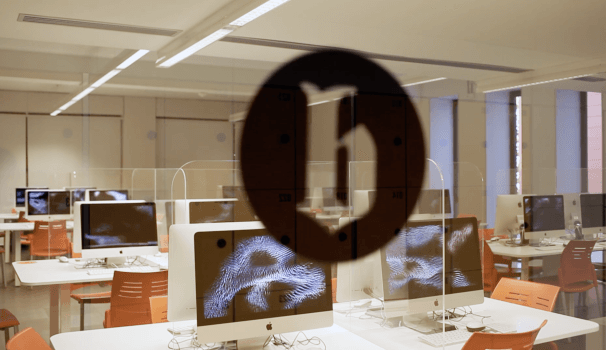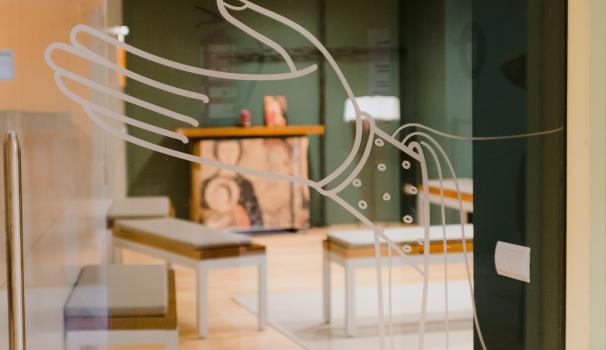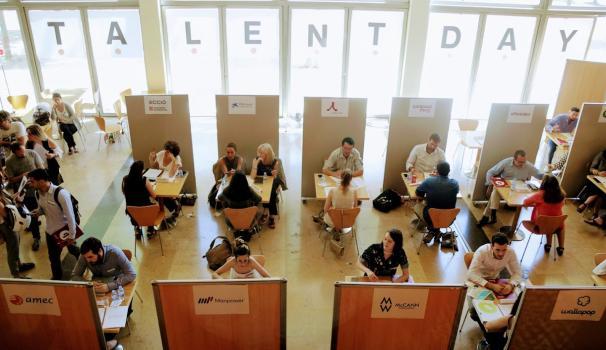To introduce what the microbiota and the microbiome are, their location and physiological functions
- Home/
- Continuing education course in food, probiotics and prebiotics to improve digestive and immune health through the gut microbiome
Continuing education course in food, probiotics and prebiotics to improve digestive and immune health through the gut microbiome
Academic year closed

- ModalityIn-person
- LanguagesCatalan, Spanish
- Duration6 sessions: 24 hours
- DateMarch 31, 2023
- Places20
- Location
Blanquerna-URL - Carrer Padilla, 326-332. 08025 Barcelona
- Faculty
Blanquerna School of Health Sciences
Food, probiotics and prebiotics to improve digestive and immune health through the gut microbiome.
The microbiome is the set of microorganisms, their genomes, the environmental conditions that surround them, and the entire habitat in which they live. The microbial communities of the gut have been considered the forgotten organ by gastroenterologists. The great interest they have aroused in the last 20 years has been due to the introduction of new methodologies that have extraordinarily increased our perception of their diversity and the beneficial role they play in health. This suggests that the gut microbiome could be used to prevent, treat, or diagnose infectious, autoimmune, and metabolic processes.
Alterations in the balance of the gut microbiome conditions the overgrowth of pathogens and the loss of microbial diversity and accompanies digestive disorders and some immune-based diseases. Given the role that the gut microbiome plays in the development of these pathologies, their modification through food, probiotics, prebiotics and, in some cases, fecal transplantation, is considered to be a tool that may help in their prevention and treatment.
Objectives
To learn their applications when consulting the tools available for studying the intestinal microbiome
To identify the changes that the microbiome undergoes in health and disease
To learn what science has to say about the effectiveness and safety of food, prebiotics, probiotics, symbiotics, postbiotics, and fecal transplantation to manipulate the gut microbiome.
Who is it for?
Dietitians-nutritionists, doctors, nurses, pharmacists and third and fourth year students of the Bachelor Degree in Human Nutrition and Dietetics.
Course content
- Generalities of the microbiome, fermented foods, probiotics, prebiotics, symbiotics, postbiotics and defined bacterial consortia deriving from the human microbiome.
- Usefulness of blood tests and gut health checks and gut microbiome tests in medical consultations.
- Clinical applications of probiotics, prebiotics and symbiotics for digestive, immune, metabolic and mental health.
- Solving case studies in the classroom and in the kitchen.
Tuition fee

Descompte
Descompte (no acumulatiu) del 15% en el preu de la matrícula a: alumni, estudiants de la Facultat de Ciències de la Salut Blanquerna-URL i membres del CFC*, COIB* i CODINUCAT*.
*Cal aportar l'últim rebut d'aquest any.
Libraries
If you need a quiet space to study or to do individual and group work, come to the library! Each school has its own library with computers, workrooms, reading points and an extensive catalog of documents you can consult in both hard copy and digital format.

Computer rooms
If you have a job or just need a computer, you can go to the computer classrooms or workspaces and use the Macs we have at your disposal.

Chapel
The chapel is the right place to find recollection, peace, to focus, to pray and to celebrate the Eucharist weekly and at important liturgical moments (Christmas, Ash Wednesday and Easter). The sacrament of reconciliation is also celebrated.

Academic Secretary
The Academic Secretaries of the Blanquerna faculties are the space for students to relate to the processes linked to the registration of official and own courses.

Student Information and Guidance Service (SIOE)
Would you like to receive information on pre-registration and admissions processes, scholarships and grants or validations? The SIOE is the service you need. Ask for all the information about any of these processes and discover all the possibilities at your fingertips.
Internship service
Professional experience is a core part of our methodology. For this reason, we have a broad spectrum of internship agreements to meet the needs and preferences of all students. You will graduate having worked in your industry.

Scholarships and grants service
At Blanquerna, we put the future within everyone's reach thanks to our scholarships and grant service to start or continue studying at our schools. Financial aid is both internal and external to the university. You will find a wide range of possibilities.

International Mobility Office
Going abroad is a unique opportunity to discover the plurality of the world. Aware of the importance of the internationalization of studies, we have established mobility agreements around the world.

Careers
This service provides graduates with the necessary means so that they can actively participate in their professionalism and propose optimal candidates to organizations and companies looking for staff.

Job Bank
The leap into the world of work is always a challenge. For this reason, we provide a Job Bank for students and graduates. This service puts students in touch with companies and institutions looking for staff.

Solidarity action
Solidarity and the struggle for human dignity are values that identify us. Solidarity Action is a volunteer program that our students can join to participate in projects in the Third and Fourth World.

Alumni service
Studying in Blanquerna allows you to be part of our community. Being a college student opens the door to a lot of options for continuing your vocational training beyond your time in the classroom.

Sports service
Want to represent the URL in college sports tournaments? You can find a wide range of possibilities for both individual and team sports. To be a student of Blanquerna, you will have a discount at the Can Caralleu and La Salle Sport & Fitness sports complexes.

Personal Guidance Service (SOP)
If you are in a difficult situation in the academic, personal or social field, you can request, free of charge, the personalized attention of the SOP. This is an interdisciplinary team of professionals who will guide you in dealing with the situation.
Faith and Spirituality
In the three Blanquerna faculties, you will find spaces for reflection isolated from the hustle and bustle dedicated to the celebration of the Faith or cultural and religious animation. If you wish, you can also receive personalized attention and information about church life.
Diversity support
At Blanquerna we promote personal development at all levels to people with a diversity of specific needs from a normalizing context that encourages personal autonomy and uniqueness.

Blanquerna Choir
If you like music and want to take part in the concerts of institutional events and festivities, sign up for the Blanquerna Choir. There you will meet new friends and enjoy music.

Student representatives
Each class group must elect a representative to put forward concerns or make proposals to the faculty members and academic management. At the same time, each degree must appoint a delegate and each school a representative on the general URL council.
Student Council
Contact between students and the university is constant and is channeled through the Student Council, the body that collects proposals and requests from students and facilitates university life.

Language support service
Are you studying a foreign language and want to improve your level? Do it at your own pace in the language self-learning classroom. This service offers various teaching resources and materials to practice the language.

Anti-harassment Point
We’re here to listen! Have you experienced or witnessed any situation of harassment? Do you have any questions about Blanquerna’s equality policy? Would you like to make a proposal or suggestion regarding gender issues? Use this Anti-harassment Point: write to us through the channels you’ll find at the bottom of this page.
Faculty
Dr. Xavier Aldeguer; Head of the Digestive System Service of the University Hospital Dr. Josep Trueta in Girona and Santa Caterina de Salt Hospital and co-founder of GoodGut.
Noemí Cuenca; dietician-nutritionist and professor at the Blanquerna School of Health Sciences-Universitat Ramon Llull.
Andreu Prados; pharmacist, dietician-nutritionist and professor at the Blanquerna School of Health Sciences-Universitat Ramon Llull.
Més informació
Per a més informació, pots contactar amb [email protected]